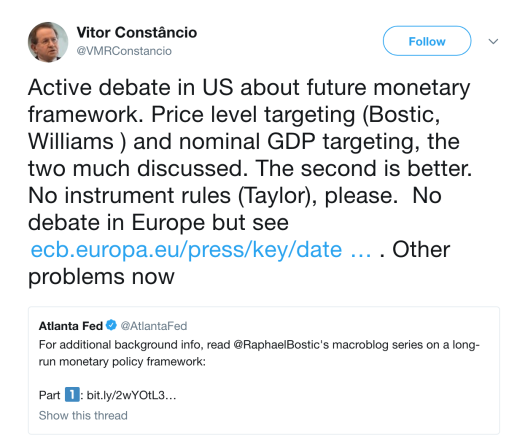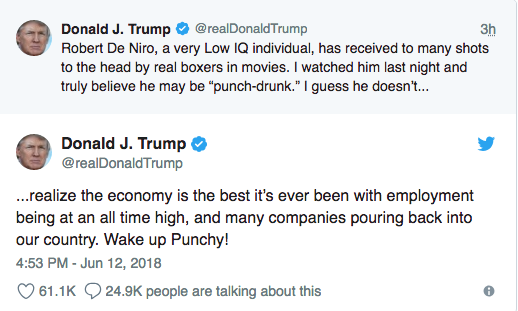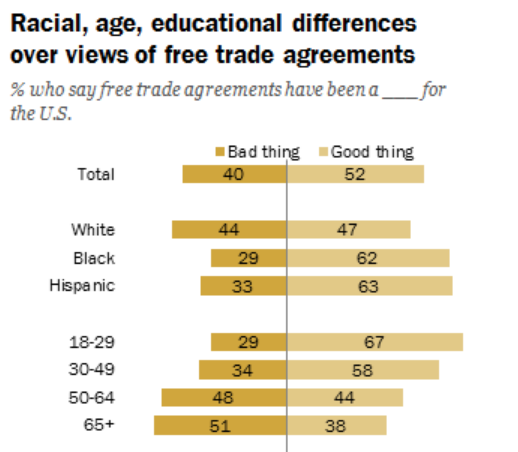Studies suggest that people with higher incomes tend to be happier. But of course that tells us nothing about causation. It seems plausible that people who “have their act together” are both happier and richer, for reasons relating to their personal characteristics. Thus economists are interested in studies of happiness that look at the effect of an exogenous increase in wealth.
Tyler Cowen recently linked to a study of Swedish lottery winners, and summarized the results as follows:
In other words, it is good to have more money.
That’s a plausible interpretation of the study, but not the only one. After all, it’s not easy to measure “good”. Here’s how the authors summarize their findings:
We find that the long-run effects of wealth vary depending on the exact dimension of well-being. There is clear evidence that wealth improves people’s evaluations of their lives as a whole. According to our estimate, an after-tax prize of $100,000 improves life satisfaction by 0.037 standard-deviation (SD) units. We find no evidence that the effect varies by years-since-win, suggesting a limited role for hedonic adaptation over the time horizon we analyze. Our results suggest improved financial circumstances is the key mechanism behind the increase in life satisfaction. In contrast, the estimated effects on our measures with a stronger affective component – happiness and an index of mental health – are smaller and not statistically distinguishable from zero.
To explain my reservations, I’m going to have to do a long digression into pop philosophy. Let’s start with Tyler’s use of the term ‘good’. I believe ‘good’ to be the most important word in the English language, and indeed in the end is the only thing that matters at all (along with negative good, i.e. bad.) I define good as positive mental states and bad as negative mental states. I use the phrase ‘positive mental states’ to incorporate the reservations people have with crude utilitarianism. Thus a term like ‘happiness’ often connotes hedonism, whereas I have something in mind that also allows for deeper forms of good, such as the satisfaction one gets from doing charity, or writing a great novel, or seeing your child do well. It also allows for more disreputable forms of “positive mental states”, such as the Nietzschean (or Trumpian) thrill that some people get in exercising power over others. So in my view, mental states are all that matters.
On the question of whether having money makes people better off, I’m of two minds. Here I am considering middle class people in Sweden or America, I think it quite likely that having more money does make the poor better off. But would I be happier if I won the lottery?
1. My gut instinct tells me that more money is good. I’d be pleased if I came across a $100 bill lying on the ground, imagining the fun things I could do with the money.
2. My philosophical mind is more skeptical. I don’t see any signs that I have more positive mental states when my income is higher than when it is lower. I’ve seen other people get a dramatic improvement in their financial well being, and (best as I can tell) they don’t seem to have a more positive mental state than when they had less money. They seem the same old person, mostly reflecting whether then have an upbeat or downbeat personality.
So I’m currently agnostic on this question; I’d put about a 40% weight on my (pro-money) instincts and about a 60% weight on my skeptical philosophical mind. Later I’ll discuss the implications of this weighting.
While the Swedish study is certainly consistent with Tyler’s conclusion, I also think it’s consistent with mine. Thus suppose that for some reason, say evolutionary forces, we are tricked into thinking money makes us better off. That’s not so far-fetched, as wealth probably does boost the probability of reproductive success, at least back during historical periods when our genes were developing. Our genes don’t want us to be happy, they want us to have lots of successful children. Thus it’s not implausible that we would want things that are not good for us, like money, fat and sugar.
Let’s assume that most people think money is a sign of success, but beyond a certain point they don’t actually have more positive mental states when they have more money. Then when asked about their overall well-being, they might report higher numbers if richer. They would think to themselves, “Let’s see, I’m a millionaire with a nice house and summer cottage, so I guess I’m doing pretty well.” But when faced with the happiness question, they think about their recent mental states, and don’t report any improvement over before they won the lottery.
Now we face another conundrum—which measure should count? Actually two issues; is happiness different from well-being, and is well-being accurately reported in surveys? I don’t doubt that heroin addicts would report that heroin makes them happy, but most people think that’s a different issue from whether heroin makes them better off. Partly because ‘happy’ and ‘better off’ may be different concepts, but also because they may even be wrong about happiness, in the long run heroin probably does not make them happy. Their self-reports are not reliable.
Another way to make my point is that I started by saying that positive mental states might be a more comprehensive concept than mere happiness. But I’m also suggesting that when people answer the happiness survey, they may actually be describing their overall mental state. In contrast, the answers to questions on overall life satisfaction may not describe mental states. It’s at least plausible that the Swedish survey is finding nothing more than that money doesn’t make people better off, but that they believe it makes them better off.
Now let’s go back to the probabilities I assigned to each of the two interpretations; 40% for money is good, 60% for the view that it is not. What are the implications of those probabilities? It turns out that this means we should assume that money is good, that it does make even middle class people better off. The expected boost to well-being from having more money is 0.40 times the boost you’d get if Tyler’s straightforward interpretation of the Swedish study is true. So even though I think it a bit more likely that money does not make us better off, we should act in such a way as if I am wrong, as if it does make us slightly better off.
But there’s another implication of these probabilities. I am pretty sure that most people assign a higher weight to the likelihood of money being good than I do. Too high a weight. If so, they put too much weight on getting more money, and not enough on other goals in life. The biggest mistake I ever made was agreeing to write an economics textbook, where I sacrificed a big chunk of my life on a frustrating project for money that will yield me very little benefit. So I encourage already affluent people to dial back the expected benefit they’d get from having more money.
If anyone is still reading, let’s dive a bit deeper into epistemology. The concept of ‘good’ is often considered one of the three transcendentals, along with “true” and “beautiful”. How should we regard beliefs in those three areas? In each case, someone might say “most people believe X, but Y is actually the case.” If so, what do they mean? They might mean one of two things; either that they disagree and think Y is true, or that they predict in the future that most people will come to believe Y. (Or both).
Unfortunately, ‘actually’ is a misleading term, as all beliefs are provisional. Thus when you say:
1. Most scientists believe the universe is largely composed of dark energy, but actually it is not.
2. Most people believe more money is good, even for the affluent, but actually it is not.
3. Most people believe Thomas Kinkade’s painting are beautiful, but actually they are not.
You are better thought of as predicting that scientists will later come to believe that some other model better explains the cosmological data, that more money will eventually be seen as useless for the affluent, and that Kinkade’s paintings will eventually be regarded as schlocky.
Some statements about truth, goodness, and beauty are held with more confidence than other beliefs (2+2 = 4, murder is evil, the Taj Mahal is beautiful.) In those cases, we are highly confident that current conventional wisdom will not later be overturned. But it’s always a matter of degree; we can never be certain about any belief. We can never go beyond what we regard to be the case.
PS. In my view, the three transcendentals are actually just one—goodness. Truth and beauty are instrumental in achieving goodness. Only mental states matter. Make them good.




